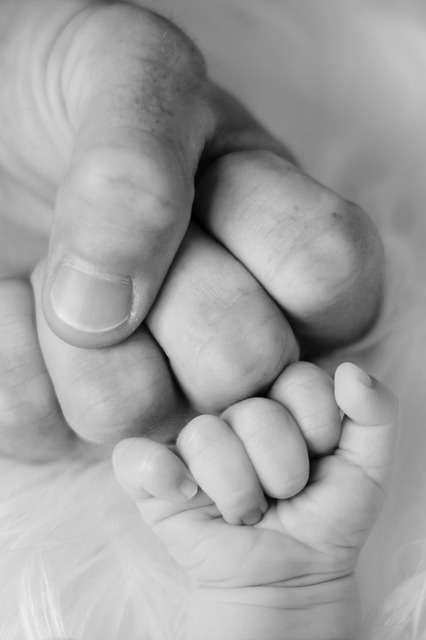The Importance of Dads

Maybe the “can’t-get-it-together,” doofus dad tropes found in sitcoms and movies over the last thirty years didn’t help cue you in, but present and engaged fathers are super important.
In honor of Father’s Day, here are a few positive things to keep in mind about the significance of being a present and engaged father.
- Fathers give their children feelings of emotional and physical security, instilling in them a sense of well-being, independence, and confidence.
- Fathers give their children the courage and confidence to explore their world and test their abilities.
- Affectionate and supportive Fathers significantly increase their children’s verbal skills, intellectual functioning, and academic achievement. Even before entering school, Fathers who are engaged with their children from infancy will have made a positive effect on their children’s IQs, increased their academic readiness, and boosted their resilience towards stress by the time their child enters Pre-K.
- Children with present and engaged Fathers (see HERE and HERE also) develop greater abundance of the qualities needed to face the world – resilience, courage, adaptability, confidence, empathy, self-motivation, impulse control, problem solving abilities, and emotional regulation.
- “Children who grow up with involved Fathers are: 39% more likely to earn mostly A’s in school, 45% less likely to repeat a grade, 60% less likely to be suspended or expelled from school, twice as likely to go to college and find stable employment after high school, 75% less likely to have a teen birth, and 80% less likely to spend time in jail.”
- “71% of high school dropouts are Fatherless; fatherless children have more trouble academically, scoring poorly on tests of reading, mathematics, and thinking skills; children from father-absent homes are more likely to be truant from school, more likely to be excluded from school, more likely to leave school at age 16, and less likely to attain academic and professional qualifications in adulthood.”
- Fathers make it less likely that their children will be incarcerated. “85 per cent of youth in prison have an absent father.” A boy from a Fatherless household is twice as likely to be incarcerated.
- Fatherhood is important for communities too. “The statistical data showed that a 1% increase in the proportion of single-parent families in a neighborhood is associated with a 3% increase in an adolescent’s level of violence. In other words, adolescents who live in neighborhoods with lower proportions of single-parent families and who report higher levels of family integration commit less violence.”
- Present and engaged Fathers greatly increase their children’s chances of life-long happiness and wellbeing.
- According to the University of Pennsylvania, “children who feel a closeness and warmth with their Father are twice as likely to enter college, 75 percent less likely to have a child in their teen years, 80 percent less likely to be incarcerated and half as likely to show various signs of depression.” As stated elsewhere, Fathers reduce their children’s likelihood of dealing with both anxiety and depression.
- When Fathers stick with the mother and raise their children together it reduces their children’s likelihood of committing suicide by half.
- Fathers drastically reduce their children’s likelihood of struggling with behavioral disorders. 85 percent of all children that exhibit behavioral disorders come from fatherless households.
- A Father being present in their children’s home makes their children four times less likely to grow up in poverty.
- A Father being in the home dramatically reduces their children’s risk of drug or alcohol abuse.
- Girls are half as likely to struggle with obesity if their Father is present in their lives.
- Fathers being present and engaged in their children’s lives make it far more likely that they will have successful and fulfilling romantic relationships in their future.
- Fathers make it less likely that their children will become sexually active in their teen years, have to deal with a teen pregnancy, or a sexually transmitted infection. Most teen pregnancies are not the result of a young woman’s relationship with another teen, but with an older male – often in an exploitative relationship. When a Father is not present in a girl’s household she is four times more likely to get pregnant as a teen.
- Linked to early sexual activity, girls who grow up in a home with an active and engaged Father are less likely to experience an early onset of puberty.
- Fathers show their daughters what a good relationship with a good man is like and help her set her expectations for how she should be treated. Her Father’s presence makes her more likely to have positive opinions of men and enables her to better relate to men and less likely get into abusive or unhealthy relationships.
- Fathers give their sons a model for what it means to be a good man, husband, and father. This modeling relationship will set the stage for how the son will tend to conduct himself in the world, value himself, and treat other people – particularly women.
- When Fathers offer their sons a positive male role model, it encourages their son to mature into masculine adulthood.
- If a Father has a good relationship with a boy’s mother, he is even more likely to emulate his father because he sees it as a path to a good woman’s love.
- When Fathers are present in their children’s home, it is more likely that their sons will grow up to be inclusive of women.
- Present and engaged Fathers (and HERE) make it far less likely that their children will be abused. “Children who live with two married biological parents are 8 times less likely to be victims of maltreatment compared to children living with one parent who has an unmarried partner in the household.”
- “Fatherless children are at greater risk of suffering physical, emotional, and sexual abuse, being five times more likely to have experienced physical abuse and emotional maltreatment, with a one hundred times higher risk of fatal abuse; a recent study reported that preschoolers not living with both of their biological parents are 40 times more likely to be sexually abused.”
- Fathers reduce overall family stress by lowering the mother’s stress. This helps her be the best mom she can be and make it less likely for a mother to neglect her children. “A mother who feels affirmed by her children’s father and who enjoys the benefits of a happy relationship is more likely to be a better mother.”
- When children see their Fathers treating their mother with equality and respect it lowers their anxiety, increases their sense of wellbeing, and makes antisocial behavior less likely.
So there you go dads – a list of why you’re job is so important. Do it well. We’re all counting on you and cheering you on!

You may also be interested in:


